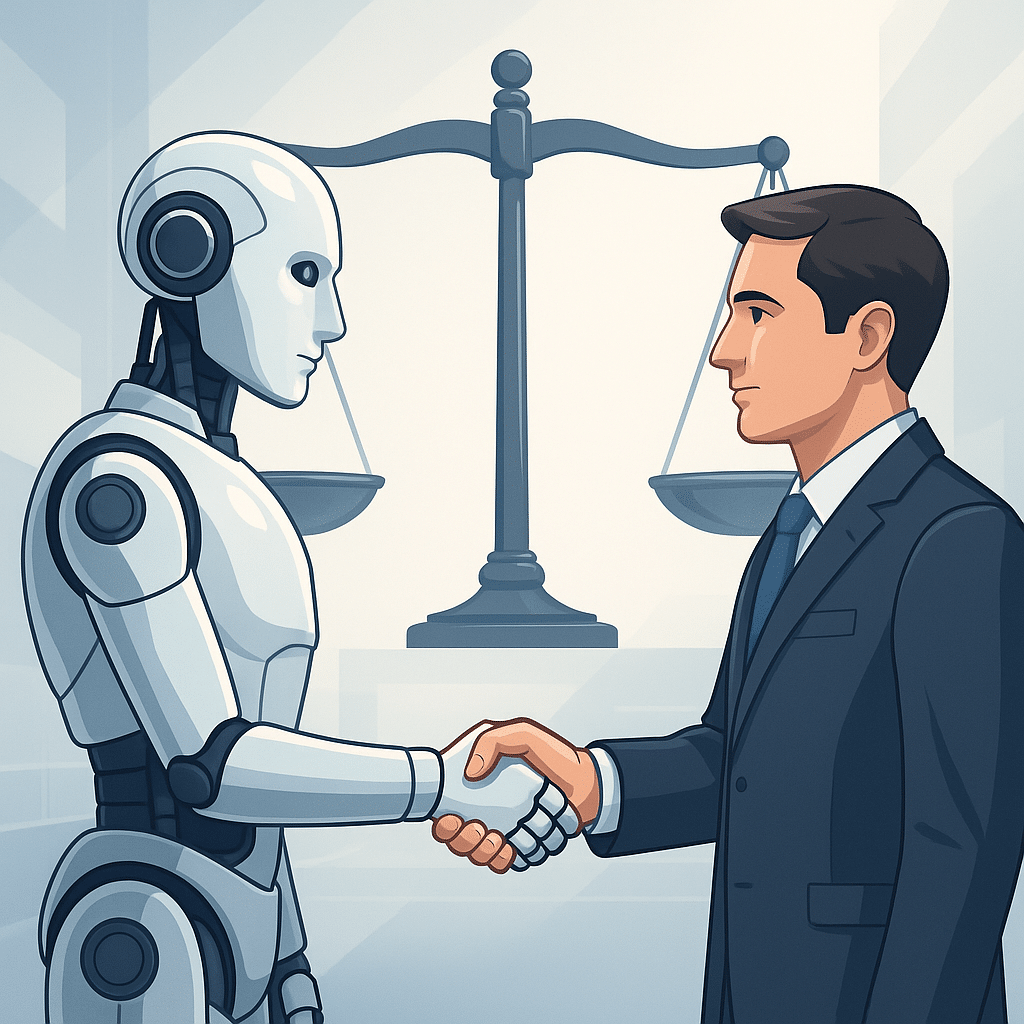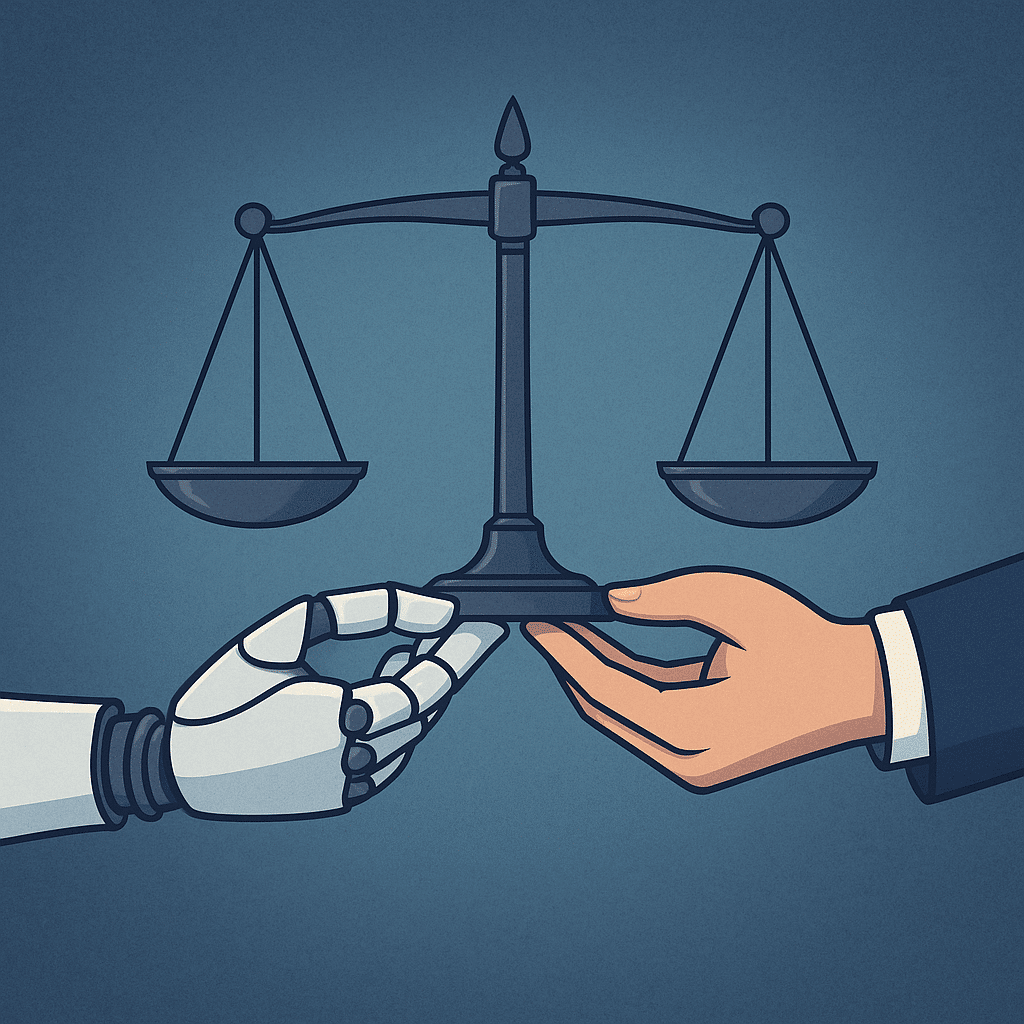The Ethics of Artificial Intelligence: Can Machines Make Moral Choices?
Introduction: As artificial intelligence systems play a bigger role in our lives, the question of AI ethics becomes critical. Can machines make moral choices, or are they simply following code without understanding right and wrong? From biased algorithms to autonomous decision-making in self-driving cars, AI systems raise complex ethical challenges. This article delves into the ethics of artificial intelligence – examining how we can ensure responsible AI, address algorithm bias, and establish governance so that machine learning models act in line with human values.
Why AI Ethics Matters
AI is increasingly embedded in decision-making processes – from determining who gets a loan or a job interview to what news we see on social media. This gives artificial intelligence significant influence over human lives. AI ethics is about making sure these decisions align with moral and societal values. If left unchecked, AI systems could reinforce injustices or cause harm. For example, an AI used in healthcare might have to choose how to allocate limited resources among patients; we expect such choices to be fair and humane. Similarly, autonomous vehicles might face “trolley problem” scenarios where they must make split-second decisions that have moral consequences (like choosing between two harmful outcomes in an accident). These situations show why it’s crucial to instill ethical principles in AI design and deployment.
Bias and Fairness in Algorithms
One of the most immediate ethical concerns with AI is bias. Machine learning systems learn from data, and if that data reflects human biases or inequalities, the AI can inadvertently perpetuate or even amplify those biases. There have been cases of algorithm bias, such as facial recognition systems that perform better on lighter skin tones than darker ones, or recruitment algorithms that unintentionally favored male résumés over female ones because they were trained on biased industry data. Machine learning ethics demands that we tackle these issues. Developers and researchers are working on techniques to audit algorithms for fairness and to eliminate biased outcomes. This might involve using more diverse training data, implementing bias-correction algorithms, or being transparent about AI decisions so they can be scrutinized. Fairness in AI isn’t just a technical issue but a moral one: an unfair AI system can lead to discrimination at scale, so ensuring algorithmic fairness is a key part of AI ethics.

Responsible AI and Governance
Because AI has such broad impacts, there’s a growing movement toward responsible AI – the practice of developing and deploying AI in a manner that is transparent, accountable, and beneficial to society. This includes AI governance frameworks being discussed by governments, tech companies, and international organizations. For example, some countries have begun drafting AI ethics guidelines or regulations that require companies to conduct risk assessments for AI systems used in sensitive areas (like finance or criminal justice). Key principles often cited in AI governance include transparency (people should know when an AI is making a decision about them and how), accountability (companies or individuals must be accountable for AI outcomes, rather than blaming “the algorithm”), and privacy (AI should not abuse personal data). Another aspect is ensuring AI is aligned with human values – often called the alignment problem. If we ever create very advanced AI (like superintelligent systems), we need to be confident that their goals won’t conflict with humanity’s well-being. These discussions, once purely theoretical, are becoming very real as AI systems like autonomous weapons or mass surveillance algorithms pose potential risks. Governance and ethics go hand-in-hand to ensure AI innovation doesn’t come at the expense of human rights or safety.
Can Machines Make Moral Decisions?
A core question in AI ethics is whether a machine can truly “understand” morality or if it’s just simulating ethical behavior. At present, AI does not possess consciousness or true understanding – it doesn’t have empathy or a moral compass the way humans do. AI can be programmed to follow ethical guidelines or choose from pre-defined options (for instance, a self-driving car’s AI might be programmed to minimize harm in an accident scenario). But does that mean the machine is making a moral choice? Most would argue it is still ultimately humans who bear the moral responsibility, since humans design the AI’s decision rules. However, as AI systems become more complex and autonomous, this gets tricky. We might see AI advisors in courts or AI doctors making treatment decisions; while they can follow ethical rules, unforeseen situations could arise where the AI has to “decide” something with moral implications. This is why ongoing human oversight is crucial. The general consensus is that machines themselves aren’t moral agents – they don’t have intent or understanding – so we need humans in the loop for important decisions. The goal, then, is not to let AI replace human moral judgment, but to use AI as a tool that can aid human decision-making while operating within ethical boundaries set by us.
FAQs on AI Ethics
Q: What is AI ethics and why is it important?
A: AI ethics refers to guidelines and principles for developing and using artificial intelligence in a morally responsible way. It’s important because AI systems can significantly affect people’s lives – from what information we see to decisions about our health, finances, or opportunities. Ensuring AI behaves ethically helps prevent harm, bias, or injustice that could result from automated decisions.
Q: How can bias in AI algorithms be reduced or prevented?
A: Bias in AI often comes from biased data or assumptions built into the algorithm. To reduce bias, developers use diverse, representative training datasets and test algorithms for unfair outcomes. Techniques like bias correction, fairness metrics, and external audits of AI systems can identify and mitigate bias. Involving ethicists and domain experts during design, and maintaining transparency about how AI makes decisions, also help prevent biased or discriminatory outcomes.
Q: What does “responsible AI” mean?
A: Responsible AI is an approach to AI development that emphasizes ethics, accountability, transparency, and safety. It means creating AI systems with fairness and human rights in mind, and being open about how they work. For example, a company using responsible AI will ensure its algorithms can be explained and will monitor their impact. If an AI causes an unintended harm, the company takes responsibility and addresses the issue. Responsible AI also includes privacy protection and ensuring AI is used for beneficial purposes.
Q: Can AI have a sense of right and wrong?
A: No – current AI does not truly understand concepts of right and wrong. AI lacks consciousness and feelings; it doesn’t possess an innate moral compass or empathy. It can be programmed to follow ethical rules or avoid certain actions, but that’s not the same as an AI feeling moral responsibility. Essentially, AI can mimic ethical behavior (by following guidelines humans give it), but it doesn’t inherently know why something is right or wrong.
Q: Are there regulations for AI ethics?
A: Formal regulations specifically addressing AI ethics are beginning to emerge. For instance, the European Union is working on an AI Act that will regulate high-risk AI applications (like those in healthcare or law enforcement) to ensure they meet ethical and safety standards. Various countries and organizations have published AI ethical guidelines, and some industries have their own standards. While many of these are currently guidelines rather than laws, the trend is moving toward more regulatory oversight as AI becomes more prevalent. Companies are wise to adopt ethical practices proactively, as stricter regulations are likely on the horizon.
Conclusion
The ethics of artificial intelligence is a critical field ensuring that as we create smarter machines, we also safeguard our values and well-being. AI holds tremendous promise for improving lives, but it also comes with risks that must be managed through careful design, unbiased data, and oversight. Machines making moral choices is not science fiction – it’s happening in small ways whenever an algorithm makes a decision that affects someone’s life. This is why AI ethics and governance are so important. By striving for responsible AI development and holding organizations accountable, we can enjoy the benefits of AI technology while minimizing harm. As AI systems continue to advance, an ethical framework will be our compass, guiding these innovations by principles of fairness, accountability, and humanity.
Further Reading
- European Commission – Ethics Guidelines for Trustworthy AI
Framework for ensuring fairness, accountability, and transparency in AI systems.
👉 ec.europa.eu/futurium/en/ai-alliance-consultation/guidelines - UNESCO – Recommendation on the Ethics of Artificial Intelligence
The first global framework on AI ethics adopted by 193 countries.
👉 unesco.org/en/artificial-intelligence/ethics - Stanford HAI – Ethics in Artificial Intelligence Research
Academic insights into responsible AI design and the ethical challenges of automation.
👉 hai.stanford.edu - OECD – AI Principles and Ethical Use
Global guidelines for human-centered, trustworthy AI adoption.
👉 oecd.ai/en/ai-principles - Harvard Business Review – Ethics of Artificial Intelligence
Practical discussion of ethical risks and strategies for businesses using AI.
👉 hbr.org
